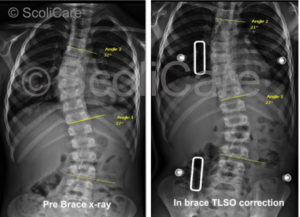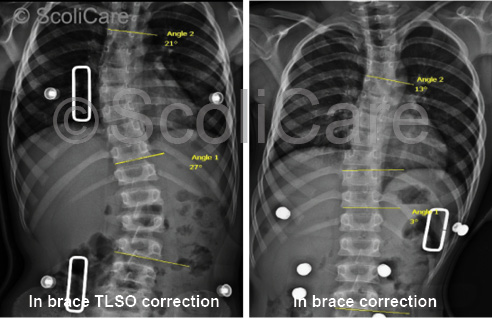Male patient aged 14 years with a right thoracic curve measured at 49 degrees.
Background
This patient was diagnosed with Scoliosis by his Physiotherapist at the age of 13 years old with a curve of 39 degrees. They first consulted a surgeon about the case who suggested surgery or bracing.
A year later they presented to the Sydney Scoliosis Clinic for bracing and the curve had progressed a further 10 degrees. The patient was not experiencing any pain from the scoliosis, but did notice the asymmetrical shape of his torso. This patient is a National medallist in Athletics and also previously played representative Australian Rules Football. Due to his regular training, this patient had a good general strength and flexibility.
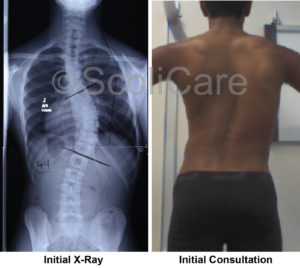
Treatment
This patient’s treatment involved wearing a customised rigid brace for 23 hrs per day, ongoing scoliosis specific exercise sessions and tractioning exercises with a scoliosis treatment aid. His brace wear started at 2 hrs per day, which was built up gradually over the following weeks to 23 hours each day. The patient does not compete in the brace but is very diligent in putting it back on straight after an event.
The scoliosis specific exercises require him to position his body in an active self-correction, which is the mirror image of his scoliosis, and to also work on strengthening his core and lower back muscles with exercises specifically prescribed for his case. He regularly sees the exercise physiologist to assess his progress and increase the difficulty of the exercises to ensure he keeps improving.
The patient does quite advanced exercises and we have now started incorporating his active self-correction to warm-up movements he does at training to help keep his spine in good alignment when he is out of the brace. The home exercises are done every day and take approximately 40mins to complete.
Results
From examining xrays and posture photos, there has been an improvement in this patient’s posture in the first 12 months of treatment. The intial curve of 49 degrees, has now decreased to 35 degrees.
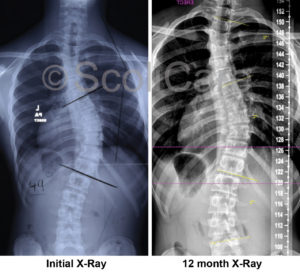
Due to his age and currently being Risser 4, it is essential for the brace treatment to continue while he is still growing. If left untreated, the scoliosis can progress further with growth.
At the beginning of the treatment, the patient was not competing at his best, but after a period of adaptation and the inclusion of specific exercises, he is now excelling and is back to the optimal form he was in prior to starting his scoliosis treatment.
The patient and his family are very committed to his treatment and to helping him succeed.
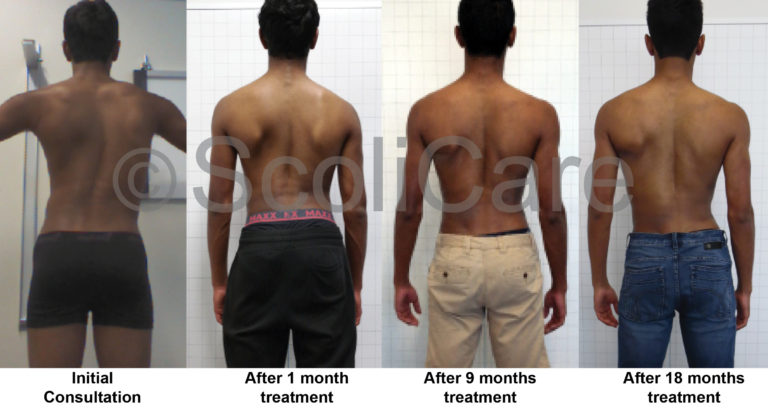
Conclusion
This case demonstrates the reduction of a large curve that was at a surgical level to a moderate curve no longer at risk of needing surgery. The combination of a rigid custom designed 3D scoliosis brace, with scoliosis specific exercise, may achieve reduction in curve and cosmetic improvement in similar cases.
The patient was also able to continue competing at an elite level without compromising his ability.
NB: All cases are different and results may vary case to case. Our commitment is to recommend the most appropriate treatment based on the patient’s type and severity of scoliosis.
© ScoliCare & The ScoliCare Clinic Sydney




